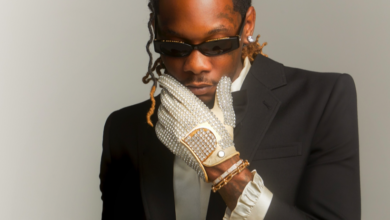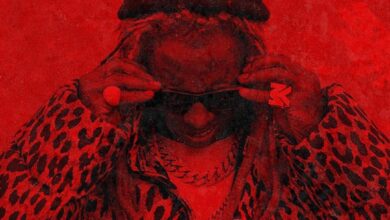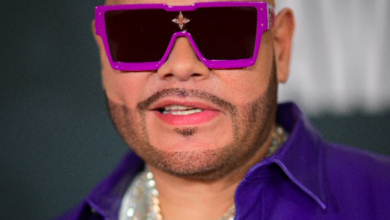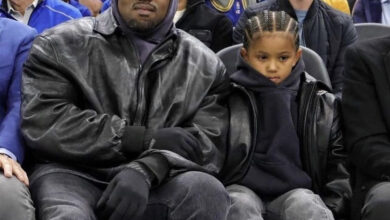Ella Mai Explains Why She’s In Love With The Woman She’s Becoming!
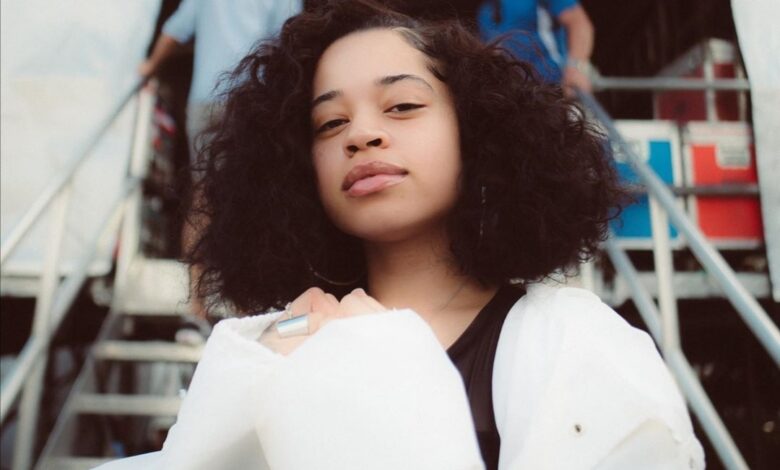
“What do you think of R&B right now?” asks Ella Mai with a quizzical expression on her face. Days following the release of her new single “Not Another Love Song,” the 25-year-old singer is at the tail-end of our Zoom interview, where she expresses her appreciation for the genre, her torrid collaborations with music juggernauts Ed Sheeran and Usher, and welcoming a new phase of womanhood.
After I rattle off a flurry of 2020 releases from Jhené Aiko, Kehlani, and Kiana Lede, Mai smiles and gives a nod of approval, acknowledging her own happiness with the R&B space. Though Mai has played the sideline much of 2020, busily chipping away at her forthcoming sophomore attempt, she’s more than ready to add in her contributions to the mix.
Her first single “Not Another Love Song” is an impressive 180 from her 2017 breakout single “Boo’d Up,” which zoomed into the top five of the Billboard Hot 100. Instead of slinging a bubbly ode to romance like her predecessor, Mai’s fear about falling in too deep rips through the Boi-1da production. “Deep in, swimmin’ in my feelings /I’ve been here before but it feels like I’m drownin’/ Sinkin’, am I overthinkin’? Tell me, am I foolish to think you need me here?” she wonders on the song’s opening verse.
With co-signs from Beyonce and Rihanna in 2020, Mai’s morale is at an all-time high as she gears up for a new chapter in her career. In her latest interview with Billboard, the singer speaks on her new single, her surging confidence, and why protecting Black women remains necessary.
I was surprised to hear you come with a B-side type of song as your first single after breaking through with “Boo’d Up.” Was that an intentional move on your part?
I definitely don’t think it was intentional — like I went into the studio, and I needed to get away from “Boo’d Up.” That definitely wasn’t the plan. As much as “Boo’d Up” is two or three years old, it’s still a lot of the reason why people love me. I don’t go into the studio and actively say “[the song] has to be like this.”
I did a session with Boi-1da and Jahaan [Sweet] and Varren — who I work with — and we actually made a whole different song in the session that we did. This was the first time I was working with Boi-1da and he was playing me the other stuff after we finished that and I was like, “Please leave me a pack.” And he was like, “Yeah, I got you.” So he left me like 15 different beats. I left it alone and went away for like a month, came back and I thought, “I haven’t looked at this Bo1ida pack. Let me go through it.” I went through it and came “Not Another Love Song.”
Me and Varren looked at each other and said, “We have to do this.” The beat was too hard already. He really, really did that, which [Boi-1da] always does. That’s really just the way it came out. It took two days to make. The first night, we got the chorus and maybe a bit of the first verse and the pre-chorus, but we were unsure where it was going to go. So we said, “Let’s come back tomorrow with fresh ears and see what we can do.”
When we came back, it just came. I just remember the first time listening to it and I didn’t even care if it was different. I felt this was the progression anyway that people needed to see because “Boo’d Up” is “Boo’d Up,” “Trip” is Trip,” and the debut album is the debut album. When I was little, I loved to see the evolution of the artist. So I think “Not Another Love Song” is a great first look into what I’ve been working on. I love it so much.
Did COVID affect your creativity or recording process in any way?
Honestly, other than the fact that I couldn’t go to the studio and when I did, I was under different measures. Like, only a certain number of people were allowed in the room to stay safe, but that was it. Creatively, it might have actually helped. I don’t know, because I’m a creature of habit. So being able to be in the room with the same three or four people [didn’t affect me]. I don’t need to be on a beach somewhere, [because] I’m a creature of habit. So if I can be in the same room and know exactly where everything is, it kind of makes me a bit more comfortable than being somewhere different everyday. The pandemic didn’t really affect me creatively in any way.
What chances do you feel like you’ve taken so far on this album that you may have not been able to on your debut project?
A lot, I think. I think these sessions that I’ve been doing for the sophomore album are a lot more figured out. When I was recording the debut, I was a lot younger, and I was trying to figure out what I wanted to sound like, figure out what I wanted to say — and as much as I love my debut album, I was in a very much different space career-wise and as a person. I was 21, 22.
I’m 25 now. Going into this sophomore album, I’m a lot more confident I think as an artist. I know what I want to say and what I want to sound like. Just in terms of that, it’s been a different process in general, because it’s been fun.
The confidence you mentioned, do you think that you also developed that as a woman and it poured over to the music, as well?
Absolutely. 100%. Just getting older and going through the motions of just being a young woman trying to navigate the world, let alone the music industry — it definitely plays a big, big part. I think I’ve always had a strong head on my shoulders. So even with the debut, I had glimpses of that assertiveness. This time around, I feel like it’s more of an “in your face” kind of thing — not too much, though.
How would you compare the chemistry between you and Mustard now versus, when y’all first linked up?
It’s almost like when people say, “It’s better left unsaid.” Before, we were both figuring out how each other worked. Obviously, Mustard has been in the game for a very long time — and I’m new, trying to navigate while he’s giving me advice. Now that we’ve been doing it for a while, it’s almost like we can go into a room and not even say anything. It just works, if you get what I mean. It’s taken time and I think we’re still learning about each other with being in the room and working. But for both us, I think we were so excited with the debut album.
I used to tell people I appreciate Mustard so much, because he treated my debut album as if it was his. He put a lot of time into what we were doing. So now that we’re getting back into it, it’s like, “Cool. Where do we wanna go?” As the songs keep coming about — because I’m not finished yet — it’s almost that feeling again that we had with the debut album. It’s God’s given gift that we met each other, because I honestly can’t thank him enough, even if it’s for advice. The music is incredible.
You’ve strung together some nice features for yourself after working with Ed Sheeran, Usher and Mahalia. Which feature was your favorite to do?
[Laughs] You know what? They’re all very special in their own different way — and I know that sounds like the cliché answer, but it’s really true. With Meek [Mill] for example, “24/7” was basically the first feature that I did after “Boo’d Up.” Everyone loved “24/7,” and I loved that record as well. So that was a great kind of introduction to me in the feature world.Then, with Ed Sheeran’s [“Put It All on Me”], I thought that was a joke. When they said, “Ed Sheeran wants you on the album,” I was like, “Hmmm. Me?” The pop world is a hole I haven’t really dug into. I know he crosses a lot of different barriers, but I hadn’t been in that world. I didn’t know how it was going to sound. But they played me the record and I loved it. I said, “I never actually heard myself on something like this anyway. So let’s do it.”
Then Mahalia might be my favorite, because we’re from the same place. We’re around a similar age. I can play “What You Did” 10,000 times during the day and never get tired of it. She’s a genuine person, and we really get along. I love what she does as an artist. So to come together as two Black women in 2019 was super special to me. Usher, of course, is a legend. So that in itself was a whole other realm. If I had to pick one, I’d say Mahalia, but I love them all.
Talk about your experience pulling up for Rihanna’s Savage X Fenty Vol. 2 event.
I was definitely trying to see how it would be after COVID. They did an amazing job with that. I’m a huge Rihanna fan. I feel like everybody thinks she can’t do no wrong. So everything that Savage X Fenty stands for as a brand is amazing. It’s different women of different cultures, shapes, sizes, sexuality and everything.
I think it was just amazing to be a part of in general also, because I’ve been away for a little while. So for that to be kind of my first introduction back into the scene — I just really wanted to be a part of it and to be able to perform new music. The show was amazing.
You previously opened up for Bruno Mars and Ariana Grande, while also headlining your own tour. What did you learn from those experiences that you plan to implement to not only future tours, but also performances, knowing that everything is limited now with COVID?
That’s a great question. With COVID, to be honest. I don’t know. Everything is so complicated right now. But just in general, as a performer — if we erase COVID, even though we can’t — when you open up for people, you’re a little bit restricted. So it was just me and my band. But my headline tour, I had my backup vocalists, which was super important to me. We had quite minimal production with lights and smoke, but we kept it that way because we really just wanted to focus on the music. It went pretty well. To have people sing “Boo’d Up” and “Trip,” that was cool, but when people are singing every word to every album cut, to me, we don’t need the crazy stage. Again, that’s progression.
So we’ll that get there, but elevating the show a little bit more [is the goal]. I want to incorporate more live stuff into this sophomore album — like performing with my band, because I think they’re amazing.
You have been vocal regarding the lack of justice in the Breonna Taylor case. With hip-hop and R&B standing by the need to protect Black women, especially after Megan Thee Stallion voiced her stance during her Saturday Night Live performance, what do you feel this country needs to do ensure the safety of African American females?
In a sense of that, I was watching Megan’s SNL performance the other day. I think during the pandemic with everything that was going on, there was obviously a lot of talk. I think the more important thing — and I think everyone thinks this — is [the need for] action. I think we’re all trying to figure it out. I don’t think anybody really has an answer, because if we had the answer, we wouldn’t be in this position that we’re in. We definitely have to figure things out day-to-day, but with more people actually doing.
Protesting is not for everyone. So I wasn’t going to judge if somebody didn’t go out and protest. Everybody’s impact, whether it’s small or large, is needed. So I think action instead of performative talk on social media is [important]. We can fight all we want, but these organizations and companies that have come out because it’s kind of the thing to do now because it’s looks good — we need action and protection for black people in general, but this fight has been way, way too long.

